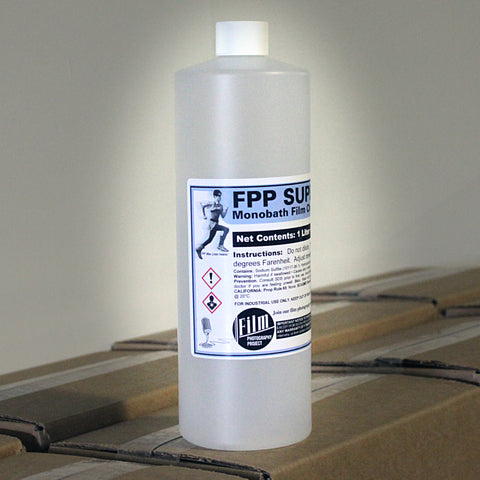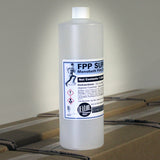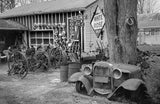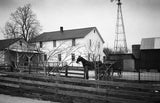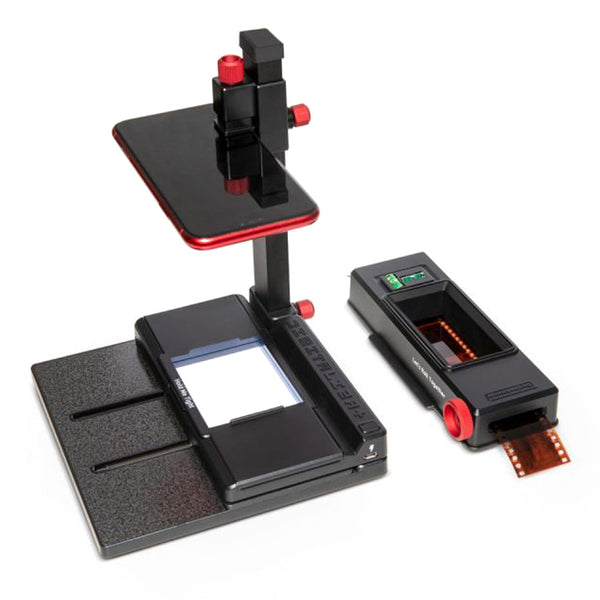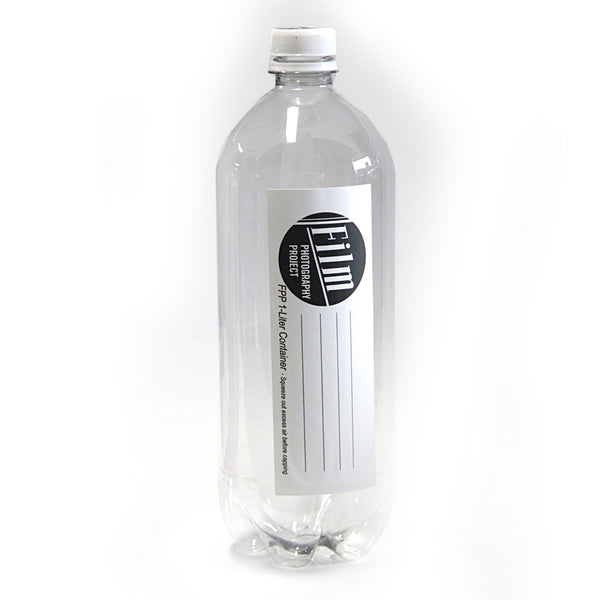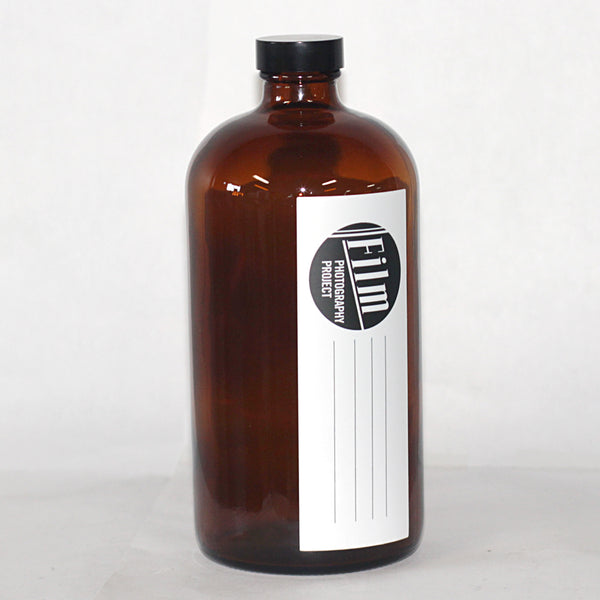Darkroom Supplies - FPP Super Monobath BW Developer (1 Liter)
FPP Super MonoBath BW Developer
One-Step BW Liquid Film Developer / One - 1 Liter Bottle
Shipping to US and Canada Only. Orders including liquid chemistry cannot ship via Priority Mail or any other expedited service. UPS Ground only.
FPP Super Mono bath is a developing solution that contains developer, stop bath and fixer all in one solution - that’s right, it's a One-Step Process! You do not mix it, you do not dilute it and you re-use it many times. (You will need basic home processing gear like a development tank, funnel & thermometer.)
Super MonoBath works at 3.5 minutes @ 75 degrees or 5.5 minutes @ 68 degrees. Note: Don't be afraid of extending you process time. It will not increase development time but will extend the fix time. Kodak TMax will need longer process time.
How to use:
-
- Pre-wash your BW film with water close to the same temperature as your monobath solution.
- After you pour out your pre-wash, add monobath for the suggested time.
- Pour back your FPP MonoBath.
- Water rinse (20 -30 min – to shorten water wash use FPP Archival Wash).
The FPP Monobath will last you approx 15 rolls of film (35mm) per 1 liter. Not recommended for film with a higher ISO than 400.
Why do you not recommend films with a higher ISO than 400 in MonoBath?
Higher ISO films and some not so high films require longer times in the developer and standard times in the fixer. Monobath processes anything you put in it at one developer time before the stop, then fix steps take over. Personally I think this is just magical ;). There is no way to extend the developing time in a Monobath, if you leave film in Monobath longer you are only extending the final part if the equation, the fixer. High Speed films like delta 3200 or Tmax 3200 will not develop out to their fullest and be thin and under developed.
How long will my FPP Super Monobath last on my shelf?! If you don't develop frequently, make sure after use that your Monobath bottle has all the air squeezed out of it before sealing - should last 3 - 6 months. That time variance is determined by the number of rolls. Monobath will get dirty and sludge colored after a few uses- that color will not impact the monobath.

above: Eastman Plus-X 5231 BW Motion Picture Film, FPP Super Mono Bath, 68 @ 6 minutes. Image by: Leslie Lazenby / Leica Minilux camera

above: Tom Wright (of MidWest Photo Exchange) - Photo: Mat Marrash
Nikon FM2 - Kodak TMax 400 - Home processed in the FPP Super MonoBath
Epson v700 scan
Additional notes:
Some monobath formulas claim to work with any film, all at the same time and temp, but we believe this is not the case. Through much testing we have a recommended list of films that work with our monobath formula. What’s even easier there are no time changes for using one of these films over the other. If you want to develop Kodak Double X and Rollie Infrared IR400 in the same tank, it’s no problem. We have found workable temperatures that are easy to accommodate your ambient temperature.
Tips:
Remember that increasing your overall processing time doesn’t increase the density of your negatives. Increasing your temperature will give you a small boost in density.
If you are finding a slight brown cast to your negatives you can simply place the film back in the chemistry for another minute or so to further clear the negatives. Agitation is 3 to 5 inversions per every 30 seconds. TMax emulsions will need a bit longer time. Final wash is 30 minutes in water or shorten this time to 3 minutes with Archival Permanent Wash.

FPP Super Mono Bath Tested Films
Adox CHS 50
Adox CHS 25
Adox CHS 100II
Arista Premium 400
Arista EDU Ultra 400
Arista EDU Ultra 200
Arista EDU Ultra 100
Dracula 35 bw film
Eastman Plus-X5231
FPP Low ISO BW
EFKE 25
EFKE 50
Fomapan 100
Fomapan 200
FPP LOVE BW 200
FPP X2 (Eastman Double-X)
FPP Dracula 35
FPP Frankenstein 200
FPP WolfMan 100
Fuji Neopan 100
Fuji Acros 100
Fuji Neopan 100ss
Ilford Pan 400
Ilford Pan 100
Iiford HP5+ 400
Iiford Pan F+ 25/50
Kentmere 100
Kodak Tri-X 400
Kodak Plus-X 125
Kodak T-Max 100
Kosmo Foto Mono 100
Lomography Earl Grey 100
Lomography Lady Grey 400
Lucky SHD 100
Maco UP100p/PO100c
Mac UP25p
Orwo UN54 iso 100
Promax 100
Rollie Infrared IR400
Rollei Ortho 25
Rollei Pan 25
Svema fn64
Svema Foto 100
Washi A iso 12
Ultrafine 125
Ultrafine T-Grain 400

